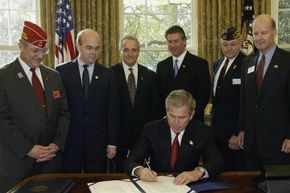For the average American, the U.S. tax code probably ranks high on the list of ridiculously confusing documents. The regulations seem purposely obtuse. The paperwork seems unnecessarily dense. The variety of forms just seems unnecessary.
For active-duty military personnel, working through the rules and regulations of the tax code can be even harder. They might be overseas. They might be paying for food and housing with allowances. They might be trudging through a war zone.
Advertisement
Active-duty military personnel include officers and enlisted soldiers, both full-time and reserve, working for any of the U.S. armed forces. They serve in the Army, Navy, Air Force, Marine Corps or Coast Guard, and they have to pay taxes like everybody else.
Their living and working situations and income types, however, might be very different from those of the average taxpayer (the differences between civilian taxes and military taxes are significant enough to warrant "military edition" tax prep software). There are qualification criteria for certain tax breaks and credits that make sense for civilians but would be impossible for some soldiers to meet. Terms like "work" and "home" can get confusing when you live on a military base. Figuring out what counts as a "work-related travel expense" can be an arduous process when you're stationed overseas.
Even "income" is a little hazy. Does an enlistment bonus count? What about in-kind benefits like health care and legal assistance? Do you count your housing allowance? Do you count anything at all when you're in a designated combat zone?
Yes, no, no, no, and maybe.
Advertisement




